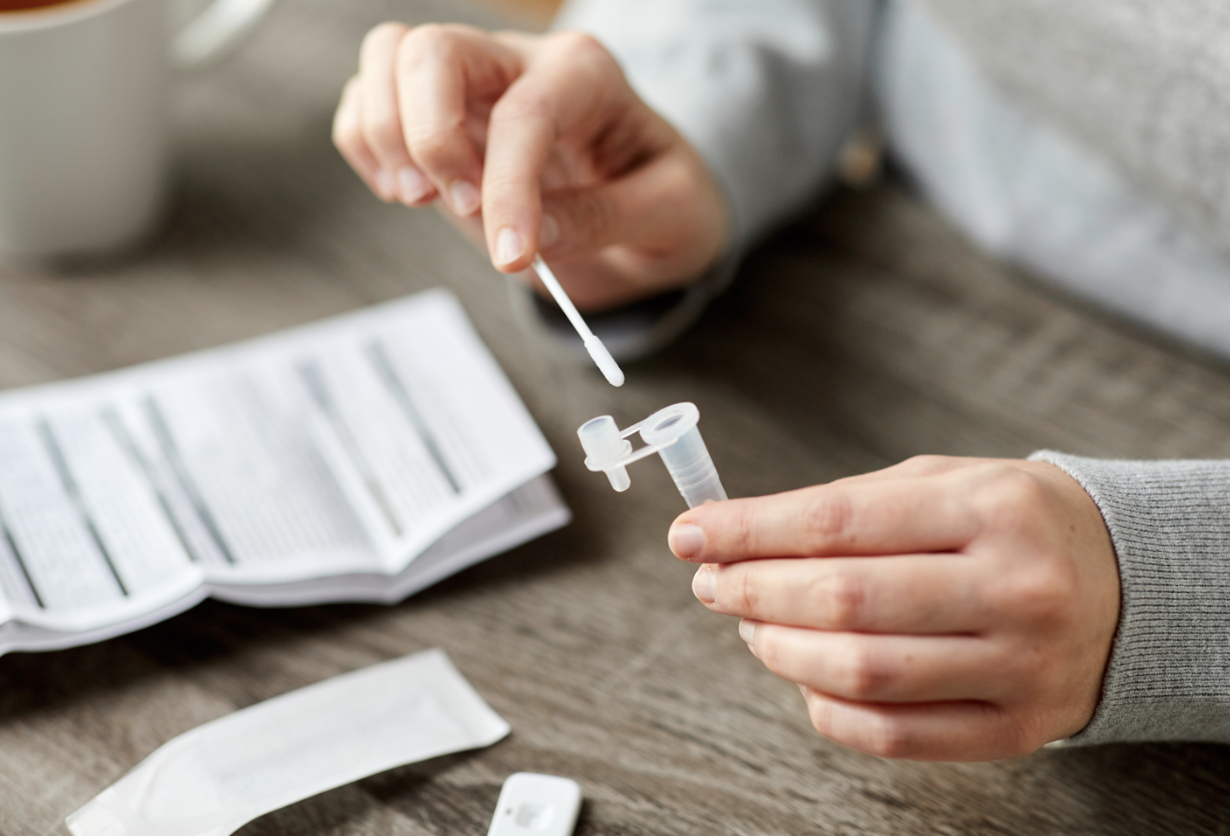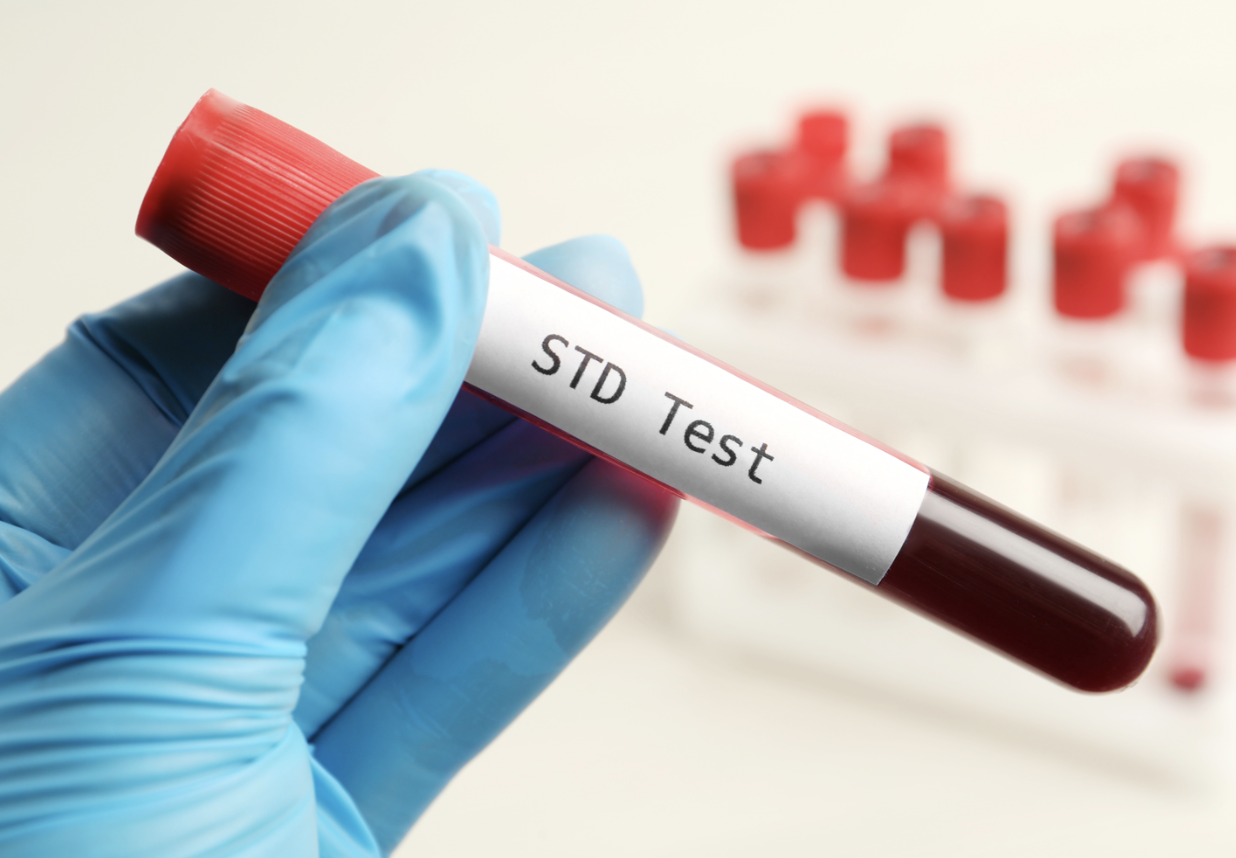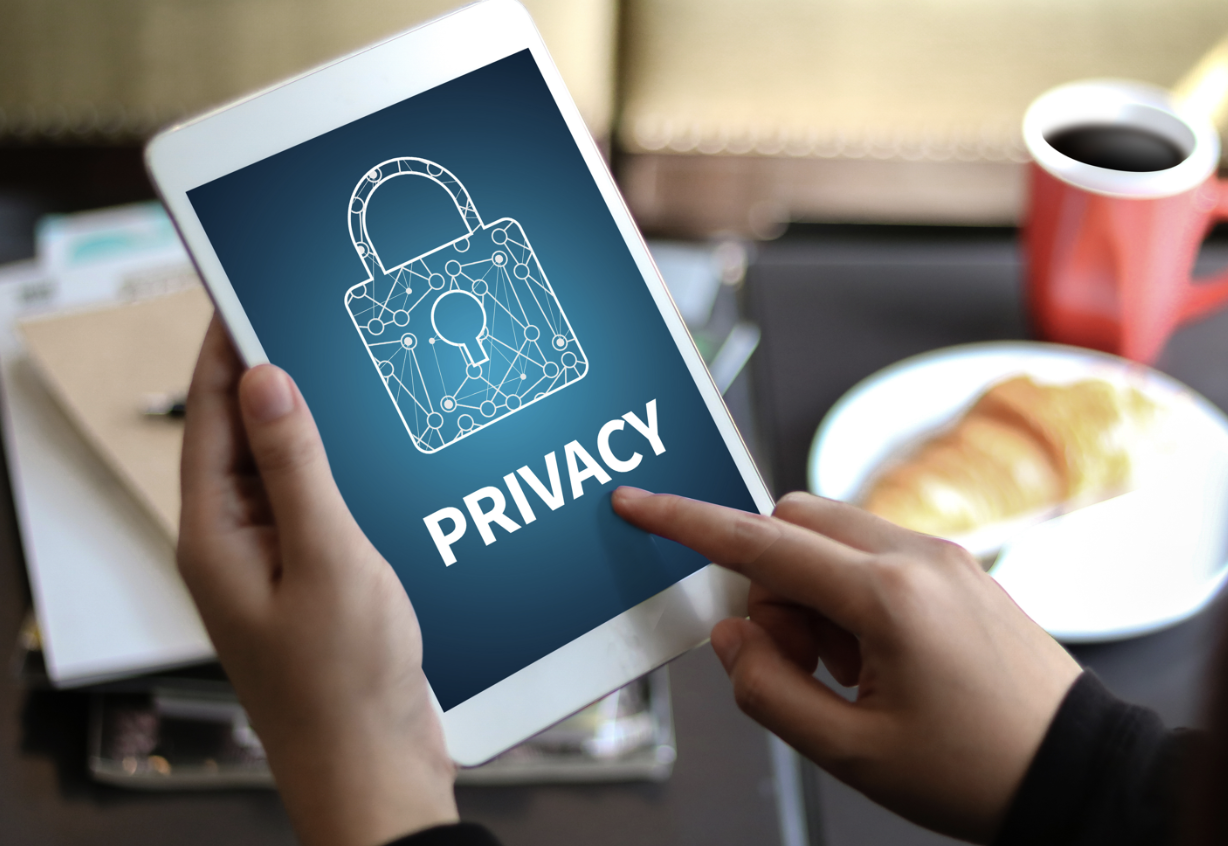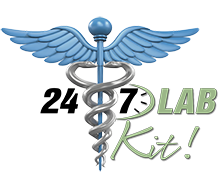Wait. I Can Test for STDs at Home?

In the age of convenience and accessibility, the healthcare world is transforming. As such, advancements in technology and a growing awareness of sexual health have paved the way for at-home STD testing kits.
Traditional STD testing often requires scheduling appointments, visiting clinics, and waiting for results. At-home testing, on the other hand, provides unparalleled convenience. You can order these kits online, deliver them to your doorstep, and use them at your convenience. The self-collection process is straightforward, and results are typically available within a few days, all without leaving the comfort of your home.
This paradigm shift allows individuals to take control of their sexual health by testing for sexually transmitted diseases (STDs) from the comfort and privacy of their own homes. This article delves into the world of at-home STD testing, exploring its benefits, limitations, and the impact it has on sexual health education and awareness.
The Rise of At-Home STD Testing

The concept of at-home STD testing may sound revolutionary to some, but it is, in fact, a response to the evolving landscape of healthcare. Over the past few decades, there has been a significant push to destigmatize discussions around sexual health and encourage more proactive and responsible behavior among individuals. At-home STD testing kits are one of the outcomes of this initiative.
First and foremost, at-home STD tests offer a sense of privacy and autonomy that can be difficult to attain through traditional healthcare settings. Many people find it uncomfortable to discuss their sexual health with a healthcare provider face-to-face due to embarrassment or fear of judgment. At-home tests allow individuals to take control of their health discreetly, without the pressure of a clinical environment or the potential for unwanted scrutiny.
This privacy aspect is especially crucial in reducing the stigma surrounding sexual health. Stigma often arises from societal norms and attitudes that deem discussions about sex and sexually transmitted diseases as taboo or shameful. When people can take an at-home test in the comfort of their own space, they are more likely to engage with the topic openly. This shift toward self-care and self-awareness is a positive step in normalizing conversations about sexual health.
Moreover, at-home STD tests come with comprehensive and easy-to-understand instructions, making them accessible to a broader range of people. This inclusivity is essential because sexual health concerns affect individuals from all walks of life, regardless of their background or demographics. By simplifying the testing process, these kits empower more people to take proactive steps in managing their health.
Additionally, at-home tests often provide a quicker turnaround time for results, which can alleviate the anxiety that often accompanies waiting for test results from a clinic. Timely information allows individuals to seek treatment or counseling promptly if needed, reducing the potential spread of infections and promoting overall well-being.
The availability of at-home tests also fosters open dialogue between sexual partners. Couples can take these tests together, enhancing trust, communication, and mutual responsibility for their health. This collaborative approach can lead to healthier relationships and a sense of unity in managing sexual health.
How At-Home STD Testing Works

As we discussed above, at-home STD testing kits are designed to provide a convenient and private way to test for various STDs. These kits typically include materials for collecting a sample (such as urine, blood, or a swab), instructions for sample collection, and packaging for sending the sample to a laboratory for analysis.
Ordering the test kit is the first step in this process, and it’s as simple as browsing online and choosing a reputable at-home STD testing service. Many companies offer testing options, from basic STD panels to more comprehensive ones. You can order the test kit of your choice from the comfort of your own home, often with complete anonymity.
Once you’ve placed your order, the test kit will be discreetly delivered to your doorstep. It typically arrives in plain packaging to respect your privacy and discretion. The kit will contain detailed instructions on how to collect the necessary samples. This often involves urine or blood samples or swabs, depending on the specific tests you’ve ordered. The instructions are straightforward and user-friendly, making the process relatively stress-free.
After collecting your samples, you’ll typically send them back to the testing company using the prepaid shipping materials provided in the kit. This step is designed to be as convenient as possible, with clear guidance on safely packaging and returning your samples.
Once the testing company receives your samples, they will process them in a certified laboratory. Highly trained technicians will perform the necessary tests to detect the presence of STDs accurately.
It’s important to note that at-home STD testing services prioritize your privacy and confidentiality. They often employ rigorous security measures to protect your personal information and test results. Many services require you to create an anonymous account to access your results online, safeguarding your privacy.
Within a few days to a week, depending on the specific test and the company you’ve chosen, you’ll receive your test results through a secure online portal or, in some cases, by phone or email. If any results are positive or require further action, the company will often guide the next steps, including how to seek treatment if necessary.
If your results indicate the presence of an STD, it’s crucial to consult with a healthcare professional for proper guidance and treatment. Many at-home STD testing services provide access to healthcare providers who can offer advice and prescriptions as needed.
Limitations and Considerations

While at-home STD testing offers many benefits, like any medical test, it comes with limitations and considerations you should be aware of.
At-home STD tests are generally accurate, but they may not be as precise as tests performed in a clinical setting. False positives and negatives can occur, leading to unnecessary stress or a false sense of security. The accuracy of the test can vary depending on the type of test, the quality of the testing kit, and how well the user follows the instructions. Choosing a reputable testing service is important to minimize the risk of inaccurate results.
Some at-home kits may not test for all STDs, so it’s important for users to be informed about what their chosen kit does and does not cover. At-home STD tests typically offer a limited menu of tests compared to what is available at a healthcare provider’s office. While they often cover common STDs like chlamydia, gonorrhea, syphilis, and HIV, they may not include less common infections. It’s essential to understand what specific tests are included in your chosen kit and whether they meet your needs.
On another note, STDs have different incubation periods, known as window periods, during which they may not be detectable by tests. At-home tests may not be sensitive enough to detect infections during these early stages. For example, it can take several weeks for HIV to show up in a test after exposure. Users should be aware of these window periods and consider retesting if they engage in high-risk behaviors or if their initial test is negative, but they remain concerned.
Lastly, at-home tests provide results, but they do not offer treatment. If a test returns positive, individuals must seek medical care for confirmation, treatment, and counseling. This can be a barrier for some, especially if they are reluctant to see a healthcare provider or need access to one.
Conclusion

The emergence of at-home STD testing is a significant development in the field of sexual health. It offers a convenient, private, and empowering option for individuals to take control of their sexual health.
By increasing access to testing, these kits can play a crucial role in early detection and treatment, thereby helping to reduce the spread of STDs. They also represent a step forward in destigmatizing sexual health and making STD testing a more normalized part of routine healthcare.
If you’re looking for the best at-home STD kits in town, check out the services offered by 247labkit. With the goal of eliminating embarrassment and prioritizing confidentiality, the available STD kits––which include chlamydia, gonorrhea, trichomoniasis, syphilis, HSV, HIV, and Hep C––will provide you with peace of mind and convenience when it comes to looking after your health.
All in all, at-home STD testing will empower you to take control of your sexual health, encouraging a proactive approach to health and well-being. And while it is not without its limitations, there are considerable benefits on the front of accessibility and privacy.
These tests stand as a testament to the advancements in technology and the shifting attitudes towards sexual health, marking a positive step towards a more informed, healthy, and responsible society.







Comments are closed